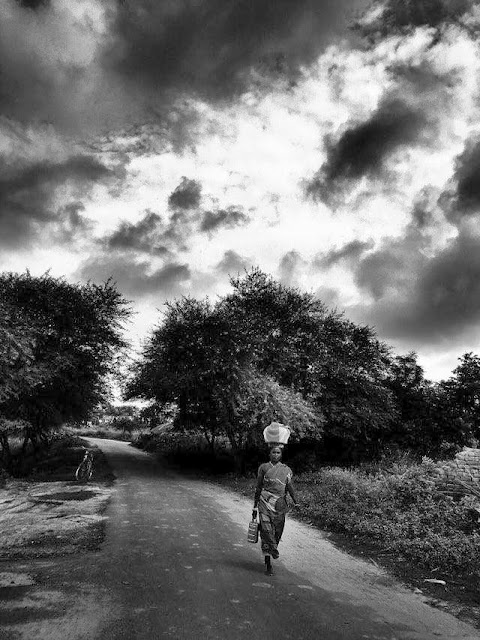 |
| Photo : LeeLa |
borrowed song
oh sweet lord
lend me another song or a half
my fire’s going out please
give me another spark
in my early years of infancy
i’ve laid all my hurt to waste
for the season of my youth now
please lend me more pain chaste
give me a song like my youth
dusky, mystically beguiling
like the red of the day at dawn
sets aglitter the whole tank
or like in a treeless land
at twilight the first star
in my land too it’s getting dark
give me another star or a half
or like the redness fiery
in the lake dissolve me
without a lover i can spend days long
but not, o lord, without a song
a lifetime anyone can squander
a fortunate few are fated pain
and lord, is every shore graced
by a doe sipping at the lake
drain away the untouched waters then
of my lake too unclaimed
or the songs that you got me to write
take those too back again
let me not extol beauty
that as an equal to fire doesn’t stand
and not praise the eye, o lord
whose tears are but bland
let me not sing songs that aren’t in pain steeped
or say words that aren’t fragrant scented sweet
if not fragrant my words happen to be
break them off the branch
or like my youth lend me
another song or a half
in my early years of infancy
i’ve laid all my hurt to waste
for the season of my youth now
please lend me more pain chaste

virtuous father dear
when the cotton does flower bear
o virtuous father dear!
buy me that season of the year
o virtuous father dear!
i lost a song in this season of yore
that of longing a garland wore
its face pockmarked with sorrow such
its eyes full of water from a ruined well
a song that when by the lips touched
sends the heart fluttering along
o virtuous father dear!
buy me that song
o virtuous father dear!
one day me and my song
in this season bewitched beguiling
the heart’s soil we ploughed
and dreams pure we sowed
with a million tears we irrigated it
no flower it bore however
o virtuous father dear
buy me just one flower
o virtuous father dear!
what use all your land
if daughters are to wither so
what use your mansarovar
if thirsty the swans go
to what end your scattered crumbs
against pearls weighed
o virtuous father dear!
if you can’t buy me that season of the year
o virtuous father dear
when cotton does flower bear
o virtuous father dear!
gazal
of dealing with sorrow, i’ve learnt the art
learnt to slowly cry and distract the heart
it’s best that you are someone else’s now
it's put an end to worries of making you mine somehow
oh you who breathe, but for this one fear i’d readily die
they sell for money even the land to light the pyre
my friends, lend me not these breaths
for i have not the courage to repay the debt
don’t try and drive shiv’s sorrow away
the treacherous rascal has a mind to cry today





